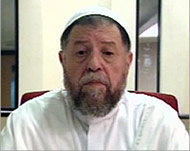Powell’s Maghreb tour raises rights issues
US Secretary of State Colin Powell has urged Tunisia to pursue political reforms as he began a rapid visit through North Africa aimed in part at promoting democracy in a region marred by human rights abuses.

“I have encouraged Tunisian leaders that I have met with to continue this process of political reform and economic change,” Powell said after talks with President Zain al-Abidin Bin Ali.
“Tunisia has accomplished so much that its people are still expecting more to happen with respect of political reforms and more openness in the society,” he told reporters after meeting the Tunisian leader, who has been in office for 16 years.
The first US secretary of state to visit Tunisia in a decade, Powell was expected to deliver similar messages in Morocco and Algeria over the next 24 hours, as well as to discuss counter-terrorism, the Middle East, Iraq and the long-standing territorial dispute over the Western Sahara.
Rights groups accuse all three countries of abuses, citing a rise in complaints of torture and suspicious deaths of detained militants in Morocco, harassment and repression of government critics in Tunisia, and allegations of torture and of unlawful killings of civilians by security forces in Algeria.
Tunisian opposition
In Tunisia, the main opposition, Nahdha(Resistance) Party of Tunisia, criticised the visit by Powell to the region as a “celebratory facade”.
|
“Tunisia’s justice system… it itself has turned into an instrument of repression” Rashid Ghannuchi |
Nahdha leader Rashid Ghannuchi, in a statement, questioned “what sort of message does this visit convey to a country whose prisons overflow with prisoners of conscience who have been made victims of a systematic slow death policy for a decade and a half.”
Ghannuchi added that “tens of others either died or were disabled for life, while their families have been made homeless.”
The opposition leader described Tunisia’s justice system as “itself” having “turned into an instrument of repression.”
Algeria abuses
In Algeria, political violence has abated in recent years, but rights groups estimate more than 150,000 people have died since army-backed authorities in 1992 scrapped parliamentary elections that a now-banned Islamic party was poised to win.
 |
|
Abassi Madani, leader of Islamic |
While saying Powell’s North African swing was by no means a “finger-wagging tour”, one US official said he would try to reinforce a 6 November speech by US President George Bush, challenging Arab nations to embrace democracy and freedom.
US officials say the Maghreb nations have some way to go on human rights and on democracy, although they point to what they call transparent parliamentary elections last year in the kingdom of Morocco, as a bright spot.
Algeria is emerging from more than a decade of political violence and US officials say they will closely watch its presidential election next year to gauge whether it is making progress on democratisation.